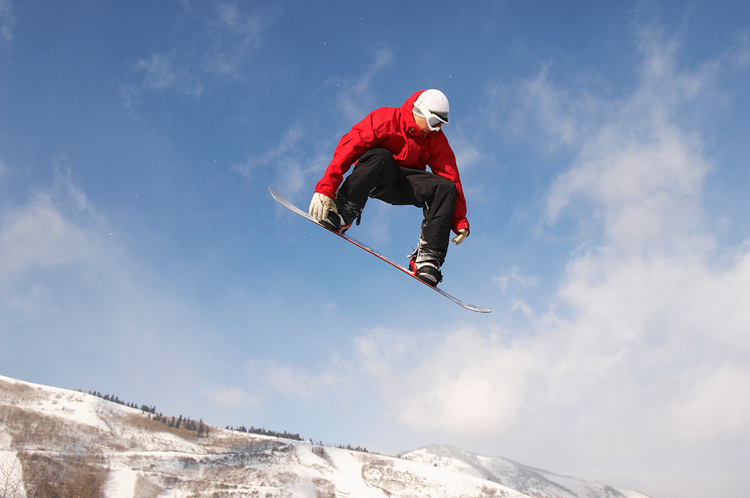From Fear Comes Flow, for Team USA Athletes

USOC senior sports psychologist Alexander Cohen explains what’s going on in the athlete’s mind.
Elite athletes are no strangers to nerves, according to Alexander Cohen, PhD. He’s a senior sports psychologist for Winter Sports with United States Olympic Committee, so we got right to the heart of the matter: What’s going on in the athlete’s head at the top of the run, and can it possibly give someone an advantage? Here are his answers.
24Life: Do U.S. Olympic and Paralympic athletes use their nerves to be better competitors?
AC: In terms of preventing or harnessing nerves or fear, it’s kind of a waste of energy to try and block out thoughts or emotions. … Instead of trying to block out fear or excitement, it’s probably more effective to just mindfully acknowledge thoughts or feelings and to learn how they affect intensity, energy and focus. Pressure is a lack of preparation. So if we help athletes train under pressure, then they get used to the effect of fear or excitement or energy in how they execute their task.
24Life: How do you train athletes who failed in past competition?
AC: I mean, every athlete fails. Right? We’re all human, and perfection’s not attainable. It’s really how athletes learn from failure that makes them consistently excellent. In general, we first look at the goals athletes want to achieve, what their wishes are, what their dreams are. But then we also consider any obstacles or internal challenges that might get in the way. If they can anticipate the challenge then they can plan a behavioral response ahead of time. … It increases their awareness, and they can be more effective the next time. It’s our failures that usually have the most information for us to learn from typically.
24Life: What meditation techniques do you use to get athletes in the proper mindset?
AC: My favorite is mindfulness or mindful meditation. It’s a process of regulating attention that brings simple awareness to your current experience with a quality of curiosity, openness and acceptance. … Mindfulness definitely improves concentration. … But mindfulness also improves resilience. It helps us to respond to internal or external stressors from a more reflective and steady place, instead of just reacting emotionally.
24Life: Besides the stress of competition, U.S. Olympic and Paralympic athletes do things that are just plain scary to most of us. How do you work with them on fear?
AC: Fear is an important survival mechanism. Like any other emotion, it’s not good or bad. It’s just a source of information. Our job is to make sure we’re paying attention to the message, paying attention to that information, because it’s not going to go away. Whether it’s trying to make a three-foot putt to win a golf tournament, or you’re going 90 miles an hour downhill on skis, your body can interpret it the same way. It’s all the same sort of neurochemicals and the adrenaline, so the interpretation of it is key.
Some of our athletes do like that rush of adrenaline, but you might be surprised. Not all athletes are actually high-risk takers. Instead, they’re competing or performing because those are the conditions necessary to achieve flow, that state of being fully engaged with the present moment, being fully alive. And so they can be doing something that seems to be terrifying from the outside but is a very sort of methodical, engaged process. The key takeaway for anybody, whether they’re an Olympian or Paralympian or not, is to find a way to be fully engaged in the moment, whether it’s working out in the gym or doing any other activity.
Photo credit: moodboard, Thinkstock